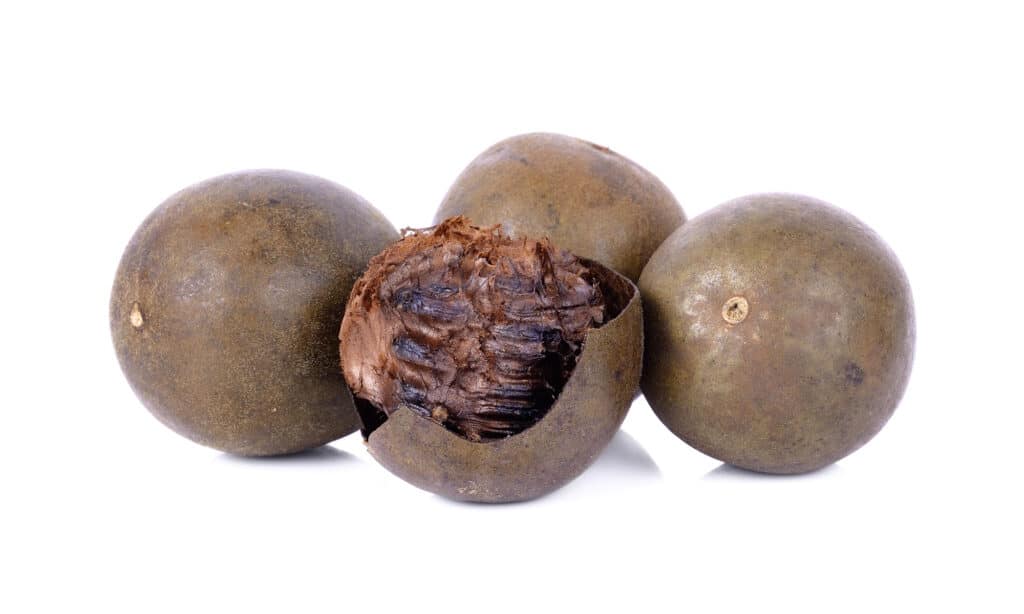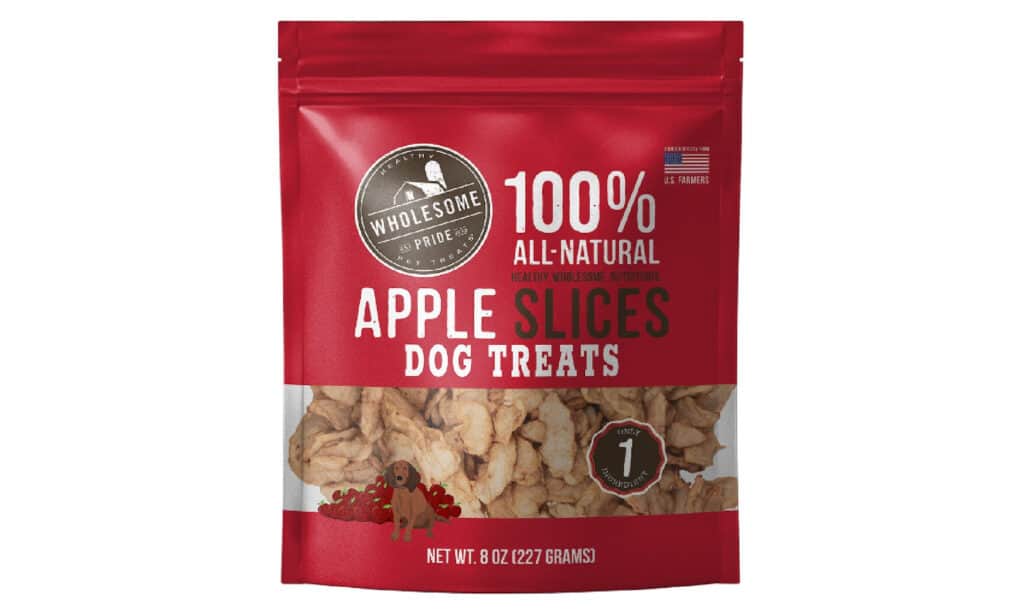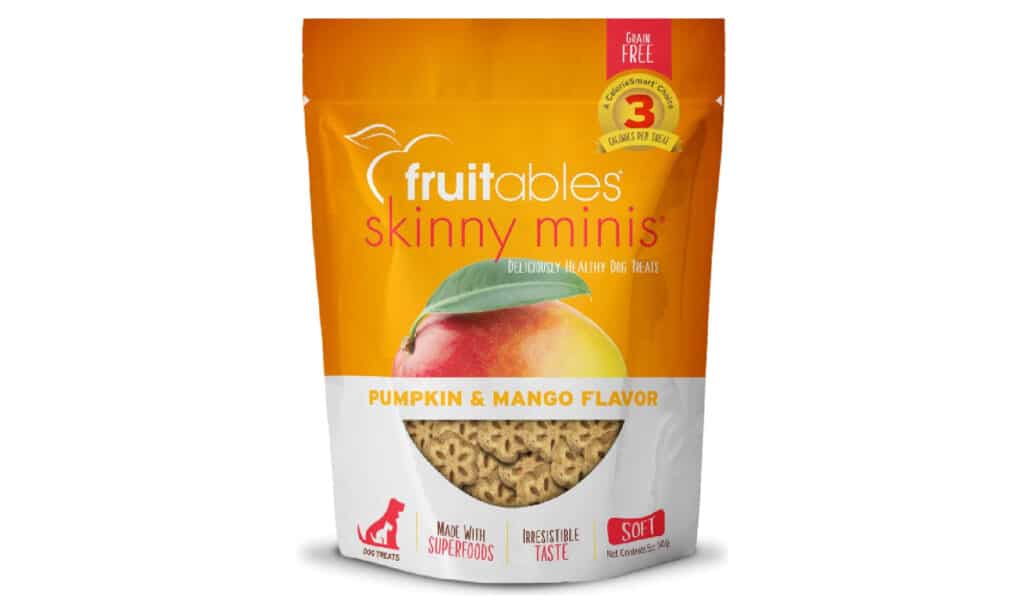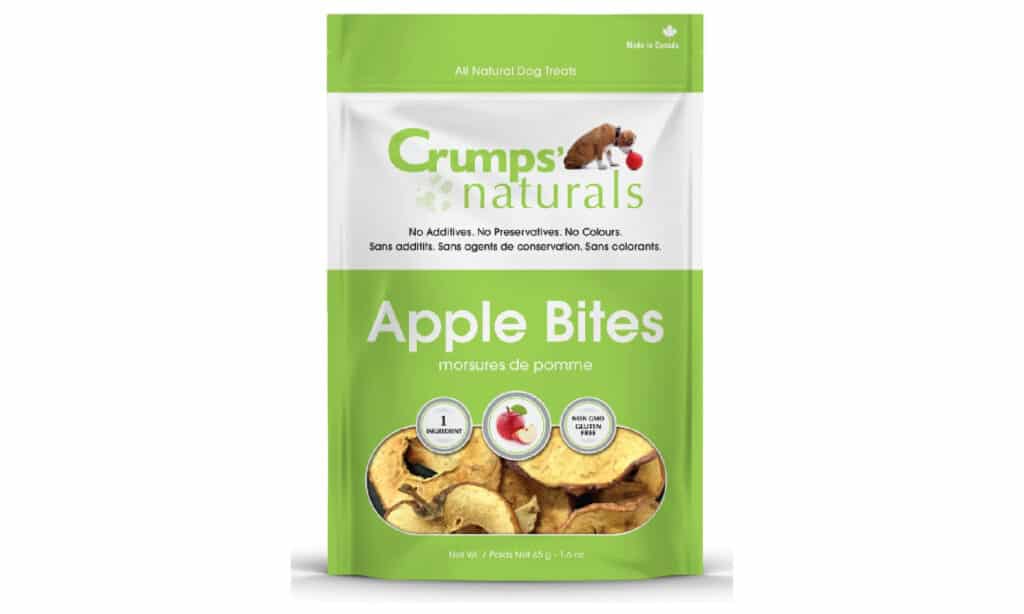Monk fruit has become increasingly popular as a natural sweetener for people who are looking to reduce their sugar intake. However, as more and more pet owners become health-conscious, they may start to wonder if this sweet fruit is safe for their furry companions as well. In this blog post, we will explore the question “Can dogs eat monk fruit?” and discuss the potential benefits and risks associated with feeding this fruit to your four-legged friend. Whether you’re a dog owner who loves to share your food with your pup or you’re simply curious about the nutritional value of monk fruit, read on to find out what you need to know about feeding this fruit to your dog.

What Is Monk Fruit?
Monk fruit, also known as lo han guo or Swingle fruit, is a small, round fruit native to southern China. It has been used in traditional Chinese medicine for centuries to treat coughs, sore throats, and other respiratory conditions.
The fruit is named after the Buddhist monks who first cultivated it, and it is considered a symbol of longevity and good health in Chinese culture. The fruit is about the size of a lemon, and its flesh is sweet and juicy. However, the sweetness comes from natural compounds called mogrosides, rather than fructose or glucose like most fruits.
Monk fruit extract is often used as a natural sweetener in food and beverages, particularly in products marketed to individuals who are looking to reduce their sugar intake. It’s 150-200 times sweeter than sugar and considered much sweeter, almost like sugar.
While monk fruit is generally considered safe for human consumption, its safety for dogs is less clear. In the next section, we’ll explore whether dogs can eat monk fruit and whether it is safe for them to do so.
Can Dogs Eat Monk Fruit?
While monk fruit is generally safe for humans, it’s important to note that dogs have different digestive systems and nutritional needs than humans. As such, not all human foods are safe for dogs to consume.
In the case of monk fruit, there is no definitive answer as to whether it is safe for dogs to eat. Monk fruit is generally safe for dogs in small amounts, although no studies have specifically examined its effects on them.
However, it’s important to note that monk fruit extract products often contain other ingredients that may not be safe for dogs. Learn if dogs can eat millet, its nutritional benefits and risks, and safe alternatives for your furry friend.
Feeding your dog large amounts of monk fruit or extract may cause digestive issues such as vomiting or diarrhea.
If you’re considering feeding your dog monk fruit or a product containing monk fruit extract, it’s always best to consult with your veterinarian first. They can help you determine whether monk fruit is appropriate for your dog’s diet and recommend safe serving sizes.

Are There Any Harmful Ingredients in Monk Fruit?
Monk fruit itself is generally considered safe and non-toxic for both humans and dogs. However, some products that contain monk fruit extract may also include other ingredients that could be harmful to dogs.
One common ingredient found in many sugar-free and low-calorie products is xylitol. Xylitol is a sugar alcohol that is used as a sugar substitute and is toxic to dogs. Even small amounts of xylitol can cause a rapid insulin release in dogs, leading to hypoglycemia (low blood sugar). Symptoms of xylitol poisoning in dogs include vomiting, loss of coordination, seizures, and liver failure, which can be fatal.
It’s important to always check the label of any product containing monk fruit extract before giving it to your dog. If the product also contains xylitol or any other potentially harmful ingredient, it should not be given to your dog.
Feeding too much monk fruit or extract to your dog could cause digestive issues like diarrhea or vomiting.
Are There Any Safe Ingredients in Monk Fruit?
Monk fruit itself is a safe and natural ingredient that is non-toxic to dogs. It’s a healthy option for humans and could offer potential health benefits for dogs, as it’s a sugar/artificial sweetener alternative.
Monk fruit extract contains natural compounds called mogrosides, which are responsible for its sweetness. Mogrosides are believed to have antioxidant properties and may help to reduce inflammation and improve immune function.
In addition, monk fruit extract is low in calories and carbohydrates, which makes it a suitable option for dogs who are overweight or have diabetes. Millet is hypoallergenic and gluten-free, ideal for dogs with food sensitivities to soy, dairy, or nuts.
However, it’s important to note that while monk fruit extract itself may be safe for dogs, many products that contain monk fruit extract may also contain other ingredients that could be harmful. Xylitol, found in sugar-free products, is toxic to dogs, as previously mentioned. Always check the label of any product containing monk fruit extract before giving it to your dog.

What Signs To Watch For If Your Dog Accidentally Ate A Lot of Monk Fruit?
If your dog accidentally eats a large amount of monk fruit, there are several signs you should watch for that may indicate a potential problem. Monk fruit is safe for dogs, but overfeeding it can cause digestive upset and other health issues.
Some signs to watch for if your dog has consumed a lot of monk fruit include:
- Vomiting
- Diarrhea
- Abdominal pain
- Loss of appetite
- Lethargy or weakness
- Increased thirst and urination
If you notice any of these symptoms in your dog after they have consumed monk fruit or a product containing monk fruit extract, it’s important to contact your veterinarian right away. They can evaluate your dog and determine whether any treatment is necessary.
In addition, as I mentioned earlier, some products that contain monk fruit extract may also contain xylitol or other potentially harmful ingredients. If your dog eats xylitol, seek vet care ASAP. Xylitol is quickly absorbed, causing low blood sugar and liver failure.
When or If You Should Go To The Vet?
If your dog has consumed a large amount of monk fruit and is showing signs of illness or discomfort, it’s important to contact your veterinarian right away. Your veterinarian can evaluate your dog and determine whether any treatment is necessary.
In general, you should consider contacting your veterinarian if your dog has consumed a large amount of monk fruit or a product containing monk fruit extract and is experiencing any of the following symptoms:
- Vomiting or diarrhea that persists for more than 24 hours
- Abdominal pain or bloating
- Loss of appetite or refusal to eat
- Lethargy or weakness
- Difficulty breathing or coughing
- Seizures or other neurological symptoms
In addition, if you suspect that your dog has consumed a product containing xylitol, it’s important to seek veterinary care immediately, even if your dog is not showing any symptoms. Small amounts of xylitol can cause low blood sugar and liver failure in dogs by being quickly absorbed into their bloodstream.

Safe Dog-Friendly Alternative to Monk Fruit:
If you’re looking for a safe and dog-friendly alternative to monk fruit, there are several options to consider. Here are a few suggestions:
- Sweet potato – Sweet potatoes are a nutritious and natural source of sweetness that many dogs enjoy. They are low in calories and high in fiber, vitamins, and minerals.
- Blueberries – Blueberries are a tasty and healthy treat for dogs that are also low in calories and high in antioxidants.
- Honey – Raw, unprocessed honey can be a sweet and healthy addition to your dog’s diet in moderation. However, it’s important to note that honey is high in natural sugars and should be given sparingly.
- Coconut sugar – Coconut sugar is a low-glycemic sweetener that is derived from the sap of coconut trees. It contains trace amounts of vitamins and minerals and is considered to be a healthier alternative to refined sugar.
- Cinnamon – Cinnamon is a natural spice that can add sweetness to your dog’s food without adding calories. It may also have anti-inflammatory and anti-bacterial properties.
It’s important to remember that even natural sweeteners should be given in moderation and as part of a balanced diet. If you have any concerns about your dog’s diet or whether a particular food is safe for them to consume, it’s always best to consult with your veterinarian.
Healthy Store-Bought Options:
In conclusion, while monk fruit is generally considered safe for dogs in small amounts, it’s important to exercise caution when feeding your furry friend any new food or supplement. Some products that contain monk fruit extract may also contain other ingredients that could be harmful to dogs, such as xylitol.
If you’re considering introducing monk fruit or a product containing monk fruit extract into your dog’s diet, it’s always best to consult with your veterinarian first. They can help you determine whether it’s appropriate for your dog’s nutritional needs and advise you on safe serving sizes.
If your dog does accidentally consume a large amount of monk fruit or a product containing monk fruit extract and is showing signs of illness or discomfort, it’s important to contact your veterinarian right away. Your veterinarian can evaluate your dog and determine whether any treatment is necessary.
There are several safe and natural alternatives to monk fruit that can add sweetness to your dog’s diet without compromising their health. Sweet potato, blueberries, honey, coconut sugar, and cinnamon are all dog-friendly options that can provide your pup with a tasty and nutritious treat.
In the end, providing your dog with a healthy and balanced diet is one of the most important things you can do to ensure their well-being. By working with your veterinarian and making informed choices about what you feed your dog, you can help them to live a long and healthy life.
~Lindsie



